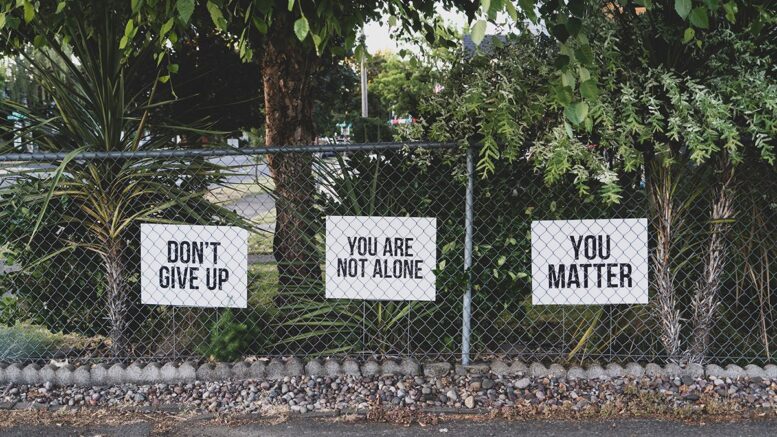Canada’s new suicide crisis helpline launched on Nov. 30, making it easier for people to ask for help when they are contemplating suicide.
9-8-8 is a three-digit suicide prevention helpline that offers support to people when they have suicidal ideations.
It is a 24/7 helpline that is available by phone call or text and it offers support in English and French.
“Our goal is to prevent suicide by making it as simple as possible for people to get the help they need when they need it,” the 9-8-8 team said in an email to The Toronto Observer.
Ontario had highest suicide rates in 2021: Statista
About 12 people die every day by suicide in Canada and more than 200 attempt suicide, according to Statistics Canada. About 4,500 deaths happen in Canada every year due to suicide.
Ontario had the highest number of suicide-related deaths in Canada in 2021 with more than 1,100 deaths across the province, according to Statista.
People who call 9-8-8 will be answered by a responder who is trained in suicide prevention.
“They are here to help you explore ways to keep yourself safe in the moment when things are overwhelming,” the team said.
How is Toronto’s mental health?
During the first year of the pandemic, one in four youth experienced an increase in symptoms of depression, according to Toronto Public Health. One in five youth experienced an increase in anxiety.
Those who are homeless have a greater risk of having poor mental health. Other people who have a higher risk of facing these challenges are people with disabilities, people part of racialized populations, those in the LGBTQ+ community and youth, according to Toronto Public Health.
There are also mental health concerns among international students, students with disabilities, students facing discrimination and those in families who have a lower household income and parental education rates.
“When someone doesn’t have any kind of internal support, it becomes very difficult for them to be able to have a strong and healthy mental health,” said Latoya Green, a caseworker at Friends of Ruby, a service that supports two-spirit, lesbian, gay, bisexual, transgender, queer, intersex, asexual and gender non-conforming youth (2SLGBTQIA+) youth in the Greater Toronto Area.
9-8-8 was created so that it is easy for people to get support whenever they need it and wherever they are in Canada.
“There is no wrong way to ask for help,” said the team in an email. “Whether you reach out to 9-8-8 or an existing local, provincial and territorial, or national helpline, someone will be there to give you the support you need.”
What happens when you call the line?
Before you are connected with a responder after calling the line, a pre-recorded message will play reassuring you that you are in the right place.
It will ask most callers a few questions, like asking to pick which language you would like support in, if you are under the age of 18 and if you would like to speak to a responder who has experience supporting First Nations, Inuit, and Métis people.
It will also tell you how to find out more about the services, including confidentiality.
“Whoever you connect to, they will always listen with compassion and without judgement, and give you space to talk,” said the team.
In situations where responders are not immediately available, the call or text will be placed in a queue for the next available responder.
“If someone does need to wait for a short time, we’d encourage them to stay with us. We will answer their call,” said the 9-8-8 team.
9-8-8’s main goal: immediate support
The 9-8-8 team said that they have taken every possible measure to ensure whoever calls the number will be answered as quickly as possible.
“Quick and easy access to the service is one of the highest priorities,” said the team.
9-8-8’s main goal is to provide immediate support to those who are at risk of committing suicide.
It is delivered by a network of crisis lines across the country. Many local, provincial, territorial, and national crisis lines will also be answering calls and texts that are directed to 9-8-8.
“Always know that there are support lines, crisis lines they can access, when they may be feeling at their most heightened,” said Green.
The 9-8-8 suicide crisis helpline is available 24 hours a day, seven days a week, via phone call or text message.
Call 9-1-1 if there is an emergency where you need the police, firefighters, or an ambulance. 9-1-1 can help if your life is in danger, or if you are with someone else whose life is in danger.
If you are trying to find a therapist or other mental health services in your area, you can call 211 in most parts of Canada or visit 211.ca. It is a free, confidential service that is available by phone, chat, text and web 24/7 in more than 150 languages.

